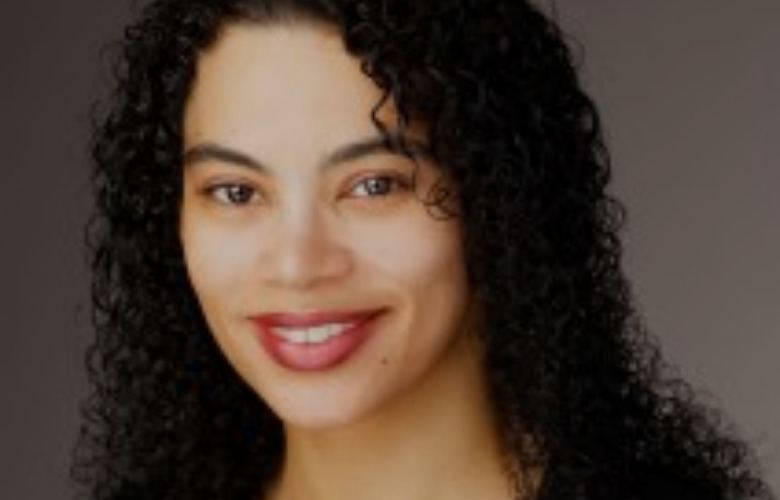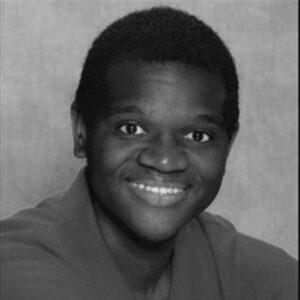
The story of Cleopatra has been told many times through books, television, film, theater, and many other mediums. Playing the leading role may be a dream come true for many actresses. Tonya Todd, a published writer, actress, podcast host, and so much more, was set to lead in a production until COVID19 said not so. Tonya took some time to answer a few questions about her road to playing the leading role of Cleopatra and what she has been up to since the world wide shut down.
As a child, I would imitate animal sounds and act out characters, first for myself (I spent a lot of time alone), then for my younger brother. Charades was a favorite game for me. At the time. I didn’t think of these things as “acting,” but they were definitely seeds.
I am a creature of many passions. Possibly, my biggest is writing, which is the first passion I followed. The inspiration for Dark Beacon came to me in a dream. It wouldn’t let me be. And even though I wrote in secret, drafting the initial manuscript consumed my covert hours. I gave into the Muse and haven’t looked back. Acting manifested from that same story. When I wrote it, I worked a Monday-Friday office job. The character in that story sheds office life for an acting career. When the company couldn’t afford to pay me anymore, he introduced me to a model/actress friend of his and suggested that might be a good career shift for me. Even though he had no knowledge of my secret book, he paid me the same severance my character received and pushed me toward her new life. It was quite remarkable.
Under the guidance of the aforementioned mentor, I acquired headshots and started auditioning. Years ago, I studied theatre, but I didn’t feel I was talented enough to work the stage. So, I auditioned for film and television projects. I learned very quickly that stage and screen are very different. After researching options, I began taking acting classes geared toward camera work. In time, I felt comfortable in both venues.
There are plenty of people to close doors on you. Don’t close them on yourself.
I review the audition scenes over and over. It would bore some people, but it’s how you ingrain it in you. You need to learn the emotions of each moment and to understand enough about what’s happening that if you are asked to improve he scene in the audition room without using the listed dialogue, you could do so without much effort. Depending on the amount of time I’m given, I might research the people involved with the production to learn the tone of their work.
That sense that I could have done better. Whether in an audition or during a performance, there’s often a lingering dread I didn’t deliver my best. And even if I get the part or meet with thunderous applause, that voice can still eat at me.
Sharing stories. I’m a storyteller at heart. And whether a book, a movie, or a play, these stories connect us. It thrills be to be a part of that.
Bard at the Bar worked on that show for months—rehearsing, preparing, coming together as a team, a family. To have it all ripped away the day after our dress rehearsal was devastating. And then, I was hit with the guilt of grieving over something so selfish. People were dying and the world didn’t know what was happening or how to handle it. I understood that on a logical level, but emotionally, I was crushed.
Since we didn’t know how long lockdown would last, we continued to rehearse over Zoom. Eventually, we decided to record the show and post it on Facebook. Doing that allowed people all over the world to watch. We had over 2,000 views, which far exceeds the venue limits we would have in person.
Caesar & Cleopatra:
For any newcomers, I recommend starting with acting classes. You need to see if you enjoy the work before investing hundreds in photos. Understand that there are all types of actors and most aren’t good in all areas. That’s okay. Experiment to learn your strengths and weaknesses. And find other actors who take the work as seriously as you do. They will be your source of encouragement and guidance.
That’s a loaded question. I would want to better understand the reasons behind their concerns before addressing them. There are valid fears, but perhaps we could work our way through them with open communication.
Several. Last June, I co-wrote and starred in a short film called New Normal. I’m working on two novels—agent revisions for Dark Beacon and a new project I aim to finish drafting by October 31st. I adapted Dark Beacon into a screenplay and a pilot episode for an hour-long series. My biggest pandemic accomplishment was writing a weekly blog series call 52 Love: 52 love lessons in 52 weeks. After signing with a literary agent to transition the blog to a book, I started a “The 52 Love Podcast.” Airing on YouTube and Spotify, the show explores an intimacy tip with a new guest each week. I’ve been honored with some amazing guests so far.
I hope people flock to the theatres to help support the venues and artists, who have been struggling to stay afloat since lockdown began. We’ve already lost so much from this pandemic. Let’s not lose our treasured arts too.
If you are specifically referencing the gender and racial bias, the way to change that is by calling people out when they are guilty. Shine a spotlight on it so we can cleanse the area thoroughly. And support those who are doing things right. If we throw money only in the right places, the wrong ones will be more likely to adjust.
On stage, I would love another shot at performing as Cleopatra. On screen, my heart is set on playing Sasha Stone, the character from Dark Beacon. These two women have transformed me into who I am.
You have my head spinning. Alive or dead opens so many possibilities. Do I play Cleopatra for the Bard himself, or play it safe with a genius whose behavior we can better predict, like Dame Judi Dench or Sir Ian McKellen? And does the project have to be a stage production? If not, then I’d want to produce one of my stories to work with Naomie Harris as my beautiful American visiting London for book research and Tom Hiddleston as the nerdy tour guide who falls for her even though she’s married.
For more information on Tonya Todd, visit her website at: http://www.mstonyatodd.com/
Sisterly Pivoting: Sister Act in the Pandemic
“Booking It”: A Conversation with Dane Reis


Casey Bell is an author, playwright, screenwriter, poet, and A.S.C.A.P. songwriter. As an author he has published over twenty books in multiple genres from poetry to children to horror to non-fiction to young adult. His latest work, American History is a children's book series. He has also authored many plays one of which has been produced three times, twice for the stage and once as a play reading for YouTube. He has also produced a short film for YouTube. Casey Bell is also a member of A.S.C.A.P. as a songwriter. His motto in life is to be as unique as your fingerprints.
Read Full Profile© 2021 TheatreArtLife. All rights reserved.

Thank you so much for reading, but you have now reached your free article limit for this month.
Our contributors are currently writing more articles for you to enjoy.
To keep reading, all you have to do is become a subscriber and then you can read unlimited articles anytime.
Your investment will help us continue to ignite connections across the globe in live entertainment and build this community for industry professionals.